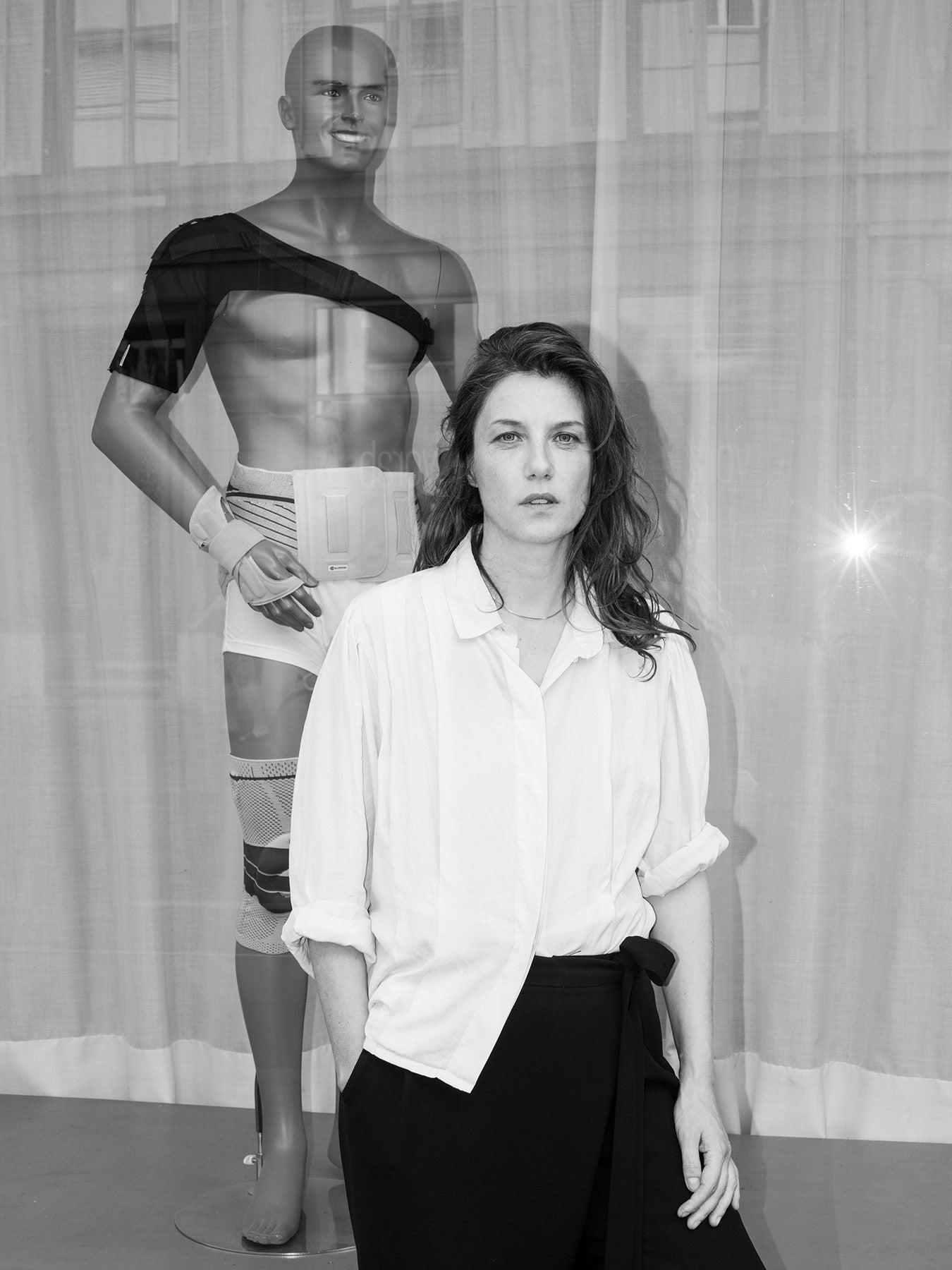< input > with Susanne Kennedy
Curated by Julien Bécourt, the input series celebrates the union between the visual and sound arts. From museum installations to underground activism, from Fluxus to noise music, it will invite a visual artist to evoke his or her relationship with the resonance and vibration of sound, and to question the sacred bond that the arts have always forged with music - be it minor or major, popular or learned.
Final talks of the cycle for the 2024-25 season
Wednesday, May 21, at 7 PM: Oliver Beer
Wednesday, May 28, at 7 PM: Susanne Kennedy
The visual artist and composer Oliver Beer and the director Susanne Kennedy both use sound in their artistic practice, in ways that are at once opposed and complementary: Beer uses sound as a witness to the history of civilisation, while Kennedy uses sound to explore virtual worlds. In this sonic extension of visual expression, both maintain a dialogue between past and future. Each of their creations, in their own way, sketches out the hypothesis of a humanity in the process of transformation, where technological acceleration, by redefining our perception of space and time, merely revives primordial myths and rituals.
Beer trained in music composition at the Academy of Contemporary Music in London before attending the Ruskin School of Art at Oxford University and studying film theory at the Sorbonne in Paris. This musical training is reflected in his live performances, films, installations, paintings and sculptures, which reveal the hidden acoustic properties of objects, bodies and architectural environments. In the installation Vessel Orchestra (2019), he amplifies the interior of hollow objects from the collection of the Metropolitan Museum of Art. In The Resonance Project, begun in 2007, vocal polyphonies play with the natural reverberation of empty buildings, from the Sydney Opera House to the Palais de Tokyo, via a hammam in Istanbul, a car park in Paris and sewers in Brighton. For the multi-screen video installation The Cave, presented at the Lyon 2024 Biennial, the artist invited well-known singers (Rufus Wainwright, Woodkid, Mélissa Laveaux, etc.) to echo their songs in the various rooms of the Font-de-Gaume cave in the Dordogne. This filmed opera reveals the acoustic sounds first experienced by homo sapiens 19,000 years ago. At the same time, he is developing his Resonance Paintings, which use these same vibratory frequencies to spread pigments across his canvases, capturing the ‘forms of sound’."Sound is a sculptural presence that depends entirely on form, time, geometry and space," he says. If you look at objects acoustically, they can begin to reveal things that we wouldn't have realised if we had looked at them purely visually."
In opposition, Kennedy's theatrical devices question the very nature of reality and are less concerned with origin than with a form of cyber-animism, in which technology mediates with the invisible world. At the crossroads of video installation and performance, they transform the actors into disembodied presences. Wearing silicone masks, they playback dialogue prerecorded in the studio, reinforcing the disconnect between their voices and their bodies. The stage becomes a simulacrum of the domestic universe, revealing the unconsciousness of the digital world and the dehumanising underside of consumer society. After exploring the works of Elfriede Jelinek, Enda Walsh, and Sarah Kane, she directed On achève bien les chevaux based on Horace McCoy’s novel in 2011, followed by Purgatoire à Ingolstadt by Marieluise Fleisser in 2013. Her next creation, Hideous (Wo)men (2013), was the result of a collaboration with the performance artist duo Boogaerdt/VanderSchoot, and it twists the format of the television game show Tournez Manège.
In 2014, she adapted the film Pourquoi Monsieur R. est-il atteint de folie meurtrière ? by R.W. Fassbinder and Michael Fengler, refining a theatre of the absurd that foreshadows the post-digital era. Next came Orfeo (2015), followed by Medea.Matrix (2016), her first collaboration with visual artist Markus Selg, where screens and lighting play a central role. In 2018, Women in Trouble portrayed women facing illness and death, from the perspective of an artificial reality. This was followed by a series of collaborations with Selg, conceived as living tableaux where nature and technology seem to have fused, giving birth to new rituals: Coming Society (2019), Algorithmic Rituals (2019), Ultraworld (2020), and Oracle (2020). The dreamlike atmosphere of ANGELA (a strange loop), programmed in 2023 at the Odéon-Théâtre de l’Europe, embodies both the hypnotic strangeness of David Lynch’s films and the social satire of the series The Curse. Set in an environment between a TV studio, an operating room, and a show apartment, a young woman experiences the symptoms of a mysterious illness, the origin of which is never identified. It’s a sensory experience, both burlesque and unsettling, that takes the audience into a waking dream. Invited to the Festival d’Automne in 2023, she presented her own version of the postmodern opera Einstein on the Beach, originally conceived by Bob Wilson to a score by Philip Glass, at the Grand Hall of La Villette. A monumental four-hour work, performed on a rotating stage, where the audience can freely move among singers, actors, and goats. In this psychedelic maelstrom, post-humanism and shamanism combine to depict the eternal cycle of civilization, where the future is linked to the infancy of humanity.
